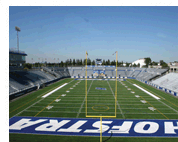He Gave His All On The Football Field And On Battlefields
Dec 17, 2019Posted by james
Thomas E. Clifford, Jr., was known as “Jock” to his friends. A natural athlete from Covington, Virginia, he earned the nickname “Jocko the Monkey” after a popular children’s character of the early 1900s.
Jock graduated from Greenbrier Military School in West Virginia and he received the school’s single appointment to the U.S. Military Academy at West Point. He was a star football player at West Point, leading Army to victory against the University of Norte Dame and the U.S. Naval Academy during the 1935 season.
Everything changed for Jock, and for everyone in the country, on December 7, 1941. By 1944, he was fighting in the Philippines. During the battle for the Ormoc Corridor, Jock’s battalion received a flanking mission to cut off the lead Japanese elements from its rear echelon. With only the ammunition and food that they could carry on their backs, his battalion infiltrated the enemy lines and climbed 900 feet to the crest of Kilay Ridge. They dug in for a long stay.
For three weeks, in torrential rain, Jock’s battalion repulsed daily attacks. Rifles became caked with mud. The weapons were more useful as clubs. Many hand-to-hand engagements resulted, and Jock’s men beat the Japanese with entrenching tools, bayonets and the butts of their rifles.
Food and ammo became scarce. Supplies from air drops often fell outside their perimeter and into enemy hands. Near the end of the battle, Jock received a radio message from the commanding general of the 32nd Infantry Division: “You are the talk of the island, and perhaps the United States. Oh, and Jock, Army beat Notre Dame 56 to 0, the worst defeat on record.”
When the battalion was relived, fresh troops who moved into the muddy foxholes of the ridge were shocked to see 1,000 dead Japanese soldiers. The successful mission earned Jock the rank of colonel and the Distinguished Service Cross.
Colonel Thomas E. Clifford, Jr., exuded the qualities of an effective and beloved leader. He commanded from the front and never asked his men to do anything that he was not willing to complete himself. Just days before the end of the campaign during 1945, Jock dashed into a barrage to rescue a wounded man. He was killed by a mortar shell.
The message announcing Jock’s death was distributed to the entire division. The words summed up Jock’s character: “No finer soldier ever wore the uniform of our army. No braver commander ever led his unit in battle. He was not only a skillful and gifted soldier, but the kind of military man we would all like to be.”









